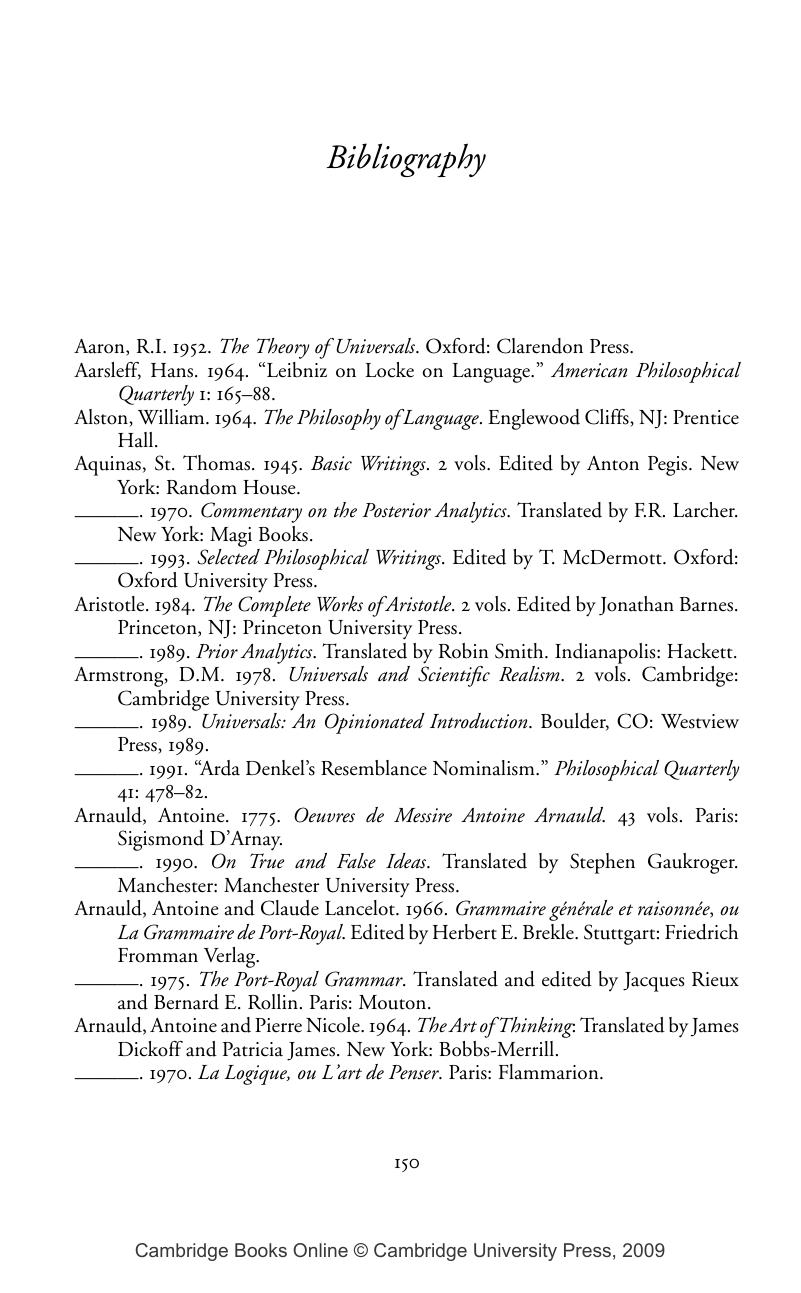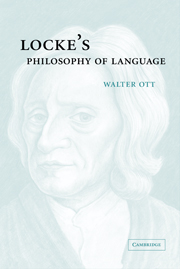Book contents
- Frontmatter
- Contents
- Acknowledgements
- Note on textual references
- Introduction
- 1 Signs and signification
- 2 Particles and propositions
- 3 Essence and abstraction
- 4 Locke contra the Aristotelians: signification and definition
- 5 Beyond the bounds of sense?
- 6 The reception of Locke's philosophy of language
- 7 Conclusion
- Bibliography
- Index
- References
Bibliography
Published online by Cambridge University Press: 22 September 2009
- Frontmatter
- Contents
- Acknowledgements
- Note on textual references
- Introduction
- 1 Signs and signification
- 2 Particles and propositions
- 3 Essence and abstraction
- 4 Locke contra the Aristotelians: signification and definition
- 5 Beyond the bounds of sense?
- 6 The reception of Locke's philosophy of language
- 7 Conclusion
- Bibliography
- Index
- References
Summary

- Type
- Chapter
- Information
- Locke's Philosophy of Language , pp. 150 - 157Publisher: Cambridge University PressPrint publication year: 2003



